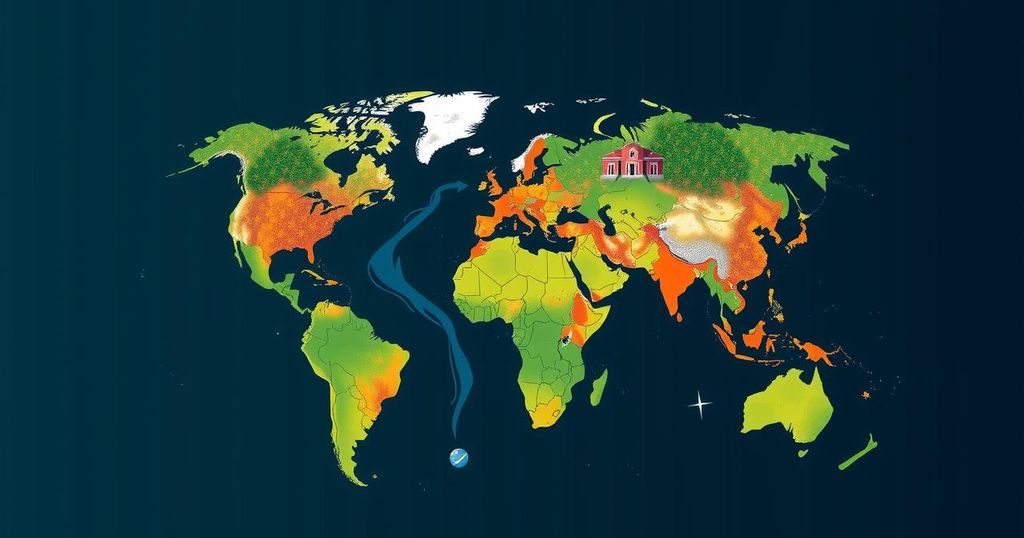A recent Lancet Countdown report highlights unprecedented threats climate change poses to human health, with warnings of record-high impacts. Key findings reveal drastic increases in heat-related deaths among the elderly, rising vector-borne diseases, and the detrimental effects of fossil fuel subsidies. While some positive developments in pollution control and renewable energy adoption exist, the report emphasizes urgent action is necessary to prevent further health crises from climate change.
A recent report from the Lancet Countdown reveals alarming impacts of climate change on global health, indicating that significant delays in action have already resulted in lost lives. The report was released amid a year projected to be the hottest on record, as climate-related disasters such as heatwaves, hurricanes, and droughts wreak havoc globally. It arrives just before the United Nations COP29 discussions in Azerbaijan and in the context of a potential return of climate skeptic Donald Trump to the US presidency. Compiled by 122 experts, including members from recognized organizations like the World Health Organization, the report highlights that of the 15 key health indicators monitored over the past eight years, 10 have reached alarming new highs. Notable trends include a 167% increase in heat-related deaths among the elderly since the 1990s and a surge in vector-borne diseases, exemplified by over five million reported dengue cases last year. Additionally, the destruction of approximately five percent of global tree cover from 2016 to 2022 has drastically hindered the planet’s ability to absorb carbon dioxide. The report also underscores the complicity of oil and gas companies and governments in exacerbating climate change by continuing fossil fuel production and providing substantial subsidies. In 2022 alone, fossil fuel subsidies totaled an astonishing $1.4 trillion, starkly contrasting with fiscal commitments directed towards sustainable transitions. While the report paints a bleak picture, it does acknowledge some positive developments, such as a nearly seven percent drop in deaths from fossil fuel-related air pollution and a near doubling of the share of renewable energy in electricity generation from 2016 to 2021. Furthermore, the increasing integration of health considerations in climate negotiations offers a glimmer of hope. Marina Romanello, the report’s executive director, stresses the urgency of immediate action, warning that continued inaction could result in dire consequences for future generations. She urges individuals to adopt climate-conscious habits, support sustainable practices, and advocate for environmentally responsible policies.
The issue of climate change has become paramount, as its effects increasingly threaten human health on a global scale. Experts have long warned that failure to address climate change would have catastrophic consequences, yet the pace of change has often lagged behind the urgency of the issue. Reports like the Lancet Countdown provide critical assessments of how anthropogenic climate alteration is directly impacting health, including increased mortality rates due to heat, the spread of infectious diseases, and food insecurity caused by extreme weather conditions. With ongoing climate discussions at international forums, the interplay of political will, corporate responsibility, and public awareness remains crucial.
In conclusion, the Lancet Countdown’s report serves as a stark reminder of the pressing health threats posed by climate change. The alarming data, particularly regarding heat-related mortality and the proliferation of infectious diseases, calls for immediate and decisive action from governments, industries, and individuals alike. While some progress has been observed, the forthcoming climate negotiations and public engagement in sustainable practices will be vital for forging a path towards a healthier future and mitigating the deleterious impacts of climate change.
Original Source: www.rfi.fr






